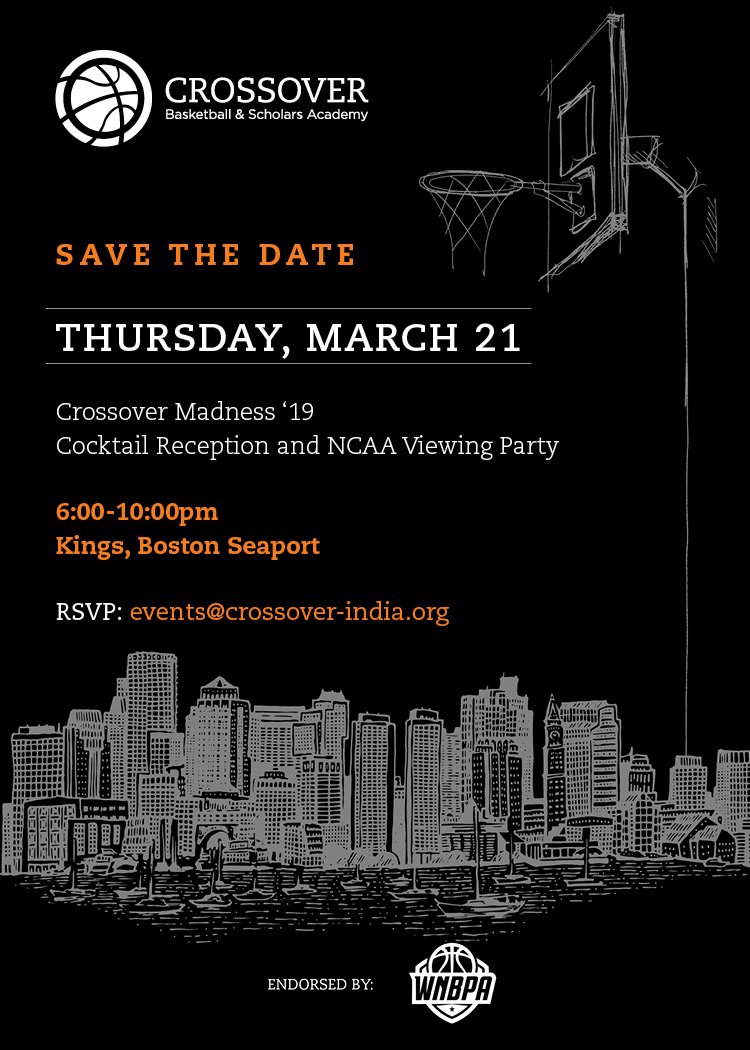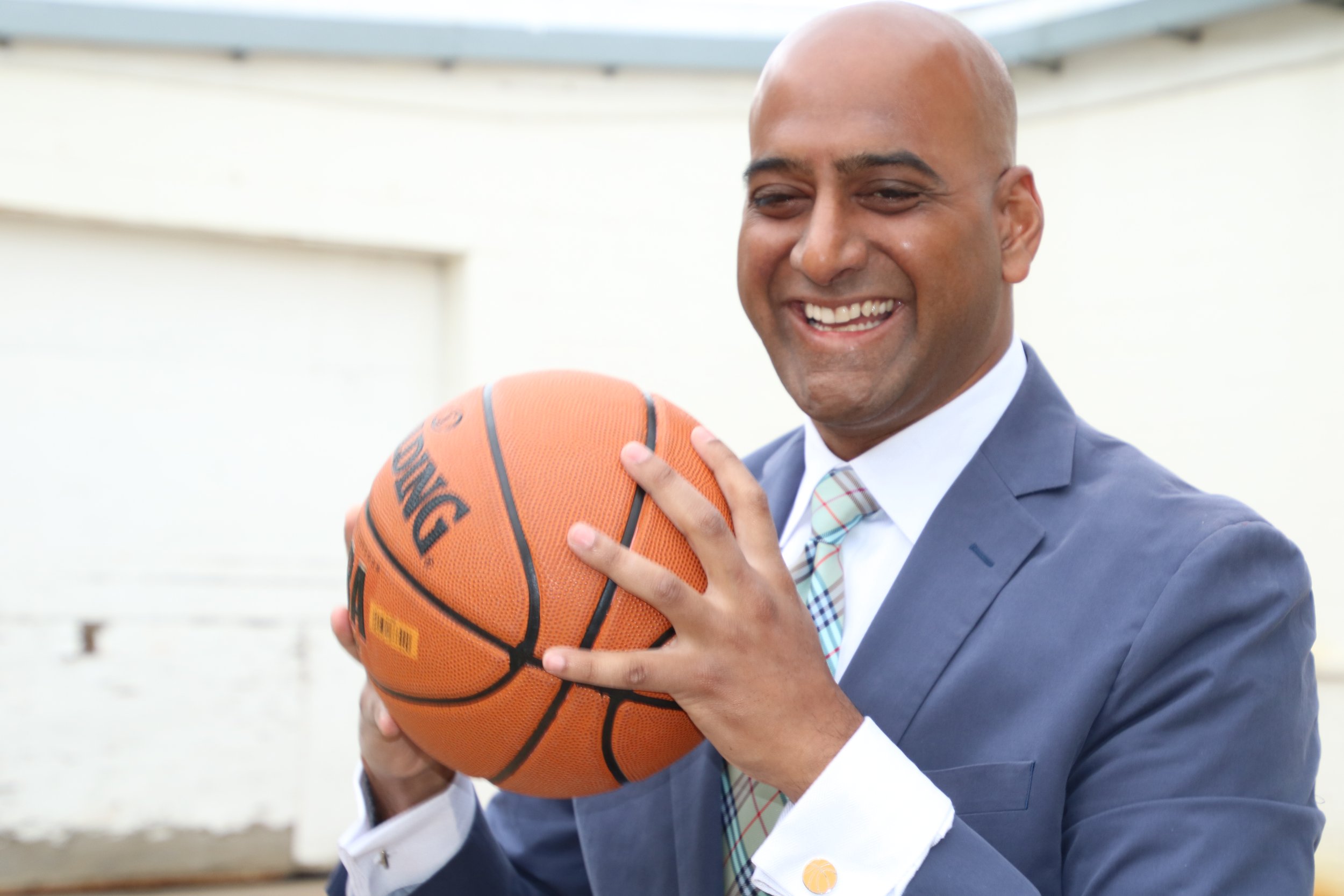Crossover Basketball is Crossing the Gender Divide
There’s no roaring crowd. No squeaking of shoes on the hardwood. No bleat of a referee's whistle. No spotlights, or scouts, or TV cameras. Just the constant sound of distinct staccato thuds as basketballs dribble with no sense of unison. On outdoor concrete courts in India, almost 2,000 children—58 percent of them girls—are part of the Crossover family. Some with shoes, many without, and all with a white Crossover shirt with the phrase “HOOPS CREATING HOPE,” and a basketball. But what if I told you all it might take to change the world is the bouncing of a rubber ball on the hot concrete in India? And that there is zero expectation for any of them to declare for the NBA draft or sign a letter of intent to a NCAA Division I school. And yet—here we are, almost nine years after the concept and seven years after our pilot program in Chennai, launching our program in Delhi and finding that our students are staying in school and not participants of child marriage. And while I can drown you in statistics, the real question you want to ask is, "Why does this work, Shaun?"I will never cease to be amazed at my mom’s journey. And I’ve heard the South Asian diaspora stories of immigrants landing with government-limited funds in their pocket but already coming from some areas of “have” in India. And I’m not taking anything away from anyone. But let me tell you about my amma.My mom is an orphan girl from India. Quick—what do you place the odds of successfully finishing high school, attending university, and immigrating to Canada and the US for an orphan girl born in 1950’s India?Literally placed at birth into a Catholic orphanage at Santhome in Chennai, the nuns served as her parents her entire life. And that’s the rock that creates the story of Crossover. That there has to be a pathway that engages hope and opportunity, critical thinking and character, teamwork and gender equity, as our solutions towards generational empowerment, and not just creating a quick fix for an economy that allows people to be “less poor.”
 But WHY does Crossover work?
But WHY does Crossover work?
Let’s be honest—hoops in South Asia never sounded like the solution to anything ever before. But it works because it is effective on multiple levels.Basketball is a known enough sport to exist but not loved passionately enough to be commonly played. And since it’s not cricket, soccer, or kabadi— that means girls can actually start on a level playing field for one of the few times in their lives. Since everyone is learning skills at the same time, girls are able to participate without starting off behind a population that has already been allowed to play for years. It also means that boys are able to visually see the meaning behind lectures that share the importance and strength of girls. And that’s powerful.Basketball requires a rubber ball that bounces and a hoop. That’s it. The rest can be figured out around that.Teaching lessons centered around Growth Mindset—leadership, gender equity, character, teamwork, and communication—means that a focus on these skills translates back to the community, classroom, and families, and allows for critical thinking to be the norm. Teaching through play changes the game—from strictly academics in families that are constantly struggling to make ends meet—to creating scholars who actively play a game that has rules and brings new ideas.
What’s Next?
 Crossover is launching our second city program in Delhi at the end of March with WNBA 2x Defensive Player of the Year Alana Beard, who will be again in Chennai this summer, and then later in the year in Mumbai to run clinics during the NBA Preseason game between the Pacers and Kings.Additionally, we will be hosting our first Crossover Madness event March 21 in Boston. Shayna Mehta, one of the greatest Indian American college basketball players, will be in attendance. We would like to extend the invitation to the Indiaspora community as well. Please email events@crossover-india.org to RSVP.
Crossover is launching our second city program in Delhi at the end of March with WNBA 2x Defensive Player of the Year Alana Beard, who will be again in Chennai this summer, and then later in the year in Mumbai to run clinics during the NBA Preseason game between the Pacers and Kings.Additionally, we will be hosting our first Crossover Madness event March 21 in Boston. Shayna Mehta, one of the greatest Indian American college basketball players, will be in attendance. We would like to extend the invitation to the Indiaspora community as well. Please email events@crossover-india.org to RSVP.
How can you help?
While the obvious answer for every nonprofit is dollars (point those donations here), we are also looking to add some amazing high school and college student volunteers to our summer program in Chennai (click here). Or share your passion for change by joining our Emerging Leaders group and/or introduce us to a company that would like to add us as a corporate partner (email me - shaun@crossover-india.org).  Shaun Jayachandran is the founder and president of Crossover Basketball and Scholars Academy, a non-profit organization increasing gender equity and education rates in India for underserved marginalized communities while using basketball as our vehicle of change. He is focused on using sports for development and social impact through the lens of gender and education rates. Born and raised in Calgary, Alberta, Canada, to the son of an orphan girl from India, his family immigrated to the US while in high school. A TEDx speaker, Shaun is part of the John Wooden coaching tree where he has combined the pyramid of success with his ideas and passion towards education, coaching, and opportunity for all into an international nonprofit that has partnered with Teach For India and been endorsed by the WNBA Players Association. He has been a Friend of Indiaspora since 2015.
Shaun Jayachandran is the founder and president of Crossover Basketball and Scholars Academy, a non-profit organization increasing gender equity and education rates in India for underserved marginalized communities while using basketball as our vehicle of change. He is focused on using sports for development and social impact through the lens of gender and education rates. Born and raised in Calgary, Alberta, Canada, to the son of an orphan girl from India, his family immigrated to the US while in high school. A TEDx speaker, Shaun is part of the John Wooden coaching tree where he has combined the pyramid of success with his ideas and passion towards education, coaching, and opportunity for all into an international nonprofit that has partnered with Teach For India and been endorsed by the WNBA Players Association. He has been a Friend of Indiaspora since 2015.
